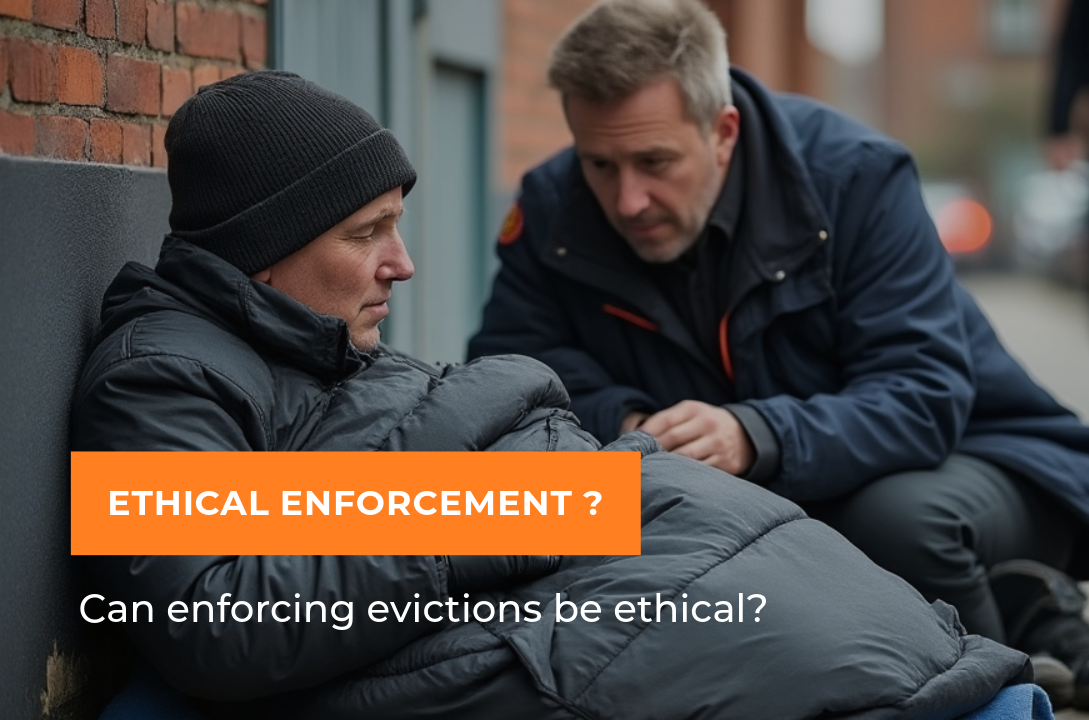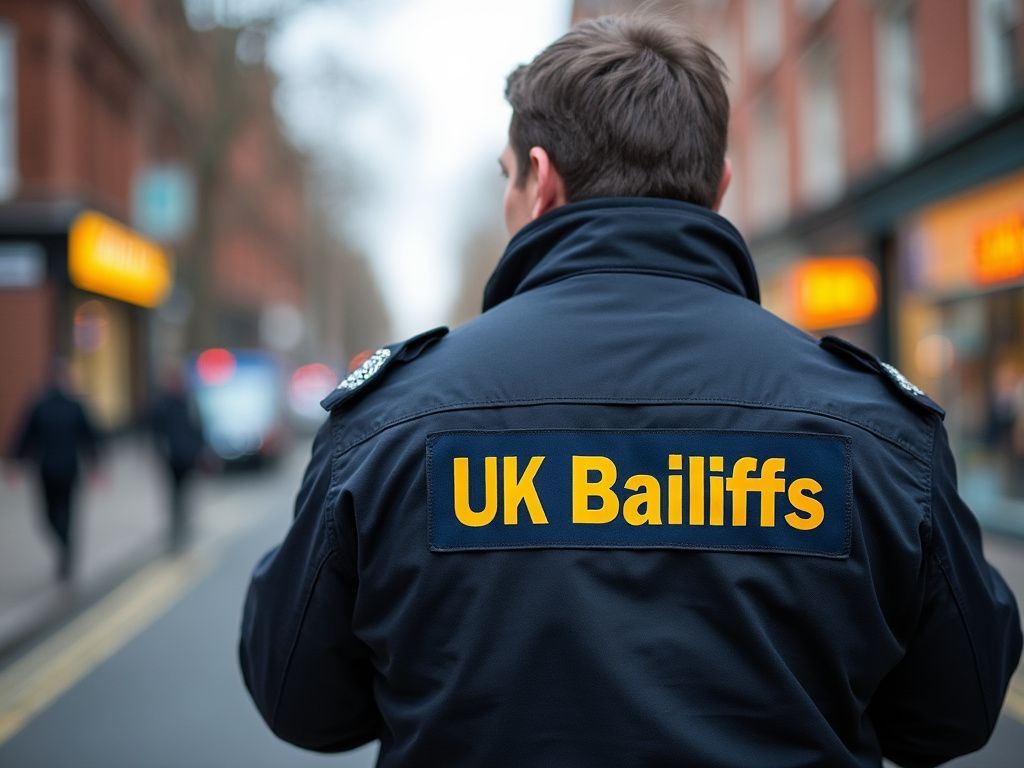Evictions | Rough Sleepers
Evict Rough Sleepers and Trespassers from private land
Our Certificated Enforcement Agents will attend your site, serve the required legal notice, and lawfully and sympathetically remove rough sleepers to help you regain control of your property.

Legal Obligations and Article 8 of the Human Rights Act
Evicting Rough Sleepers and Tent Occupiers from Private Land: Human Rights & Proportionality
In recent years, the presence of individuals living in tents on private land has become a sensitive issue for landowners across the UK. This includes both logistical and legal challenges, especially when Article 8 of the Human Rights Act 1998—respect for private and family life—comes into play.
Enforcement must be justified and proportionate. Recent cases, such as the Metropolitan Police's unlawful action against tent dwellers ( read more ), highlight the legal and reputational risks of acting without due process.
Factors Enforcement Agents Must Consider
- Vulnerability and Welfare: Are the occupants children, unwell, or disabled?
- Support Services: Can they be signposted to shelters or charities?
- Eviction Method: Has proper notice been given? Is the action humane and lawful?
Our Ethical Commitment
At UK Bailiffs, we carry out full risk assessments, respect the rights of vulnerable individuals, and ensure every action is lawful and proportionate. Our agents follow a strict code that aligns with Article 8 of the Human Rights Act.
Evicting individuals in tents involves more than property law—it requires balanced, human-centred enforcement that protects everyone’s dignity.

“All landowners in England and Wales, whether private or local authority, have a common law right to remove trespassers from their land.”
Welcome to UK Bailiffs – Managing Unauthorised Encampments
If you're a landowner seeking to evict rough sleepers, travellers, or trespassers from private land or commercial premises, our certificated bailiffs are here to help you regain control — safely and lawfully.
We specialise in the prompt empathetic removal of rough sleepers & homeless and unauthorised occupants across England and Wales, using Common Law powers where appropriate.
Why Choose UK Bailiffs?
- Over 19 years of experience in traveller and rough sleeper evictions
- Common Law enforcement without court delays
- Professional, respectful, and fully compliant with legal duties
Our certificated enforcement agents carry out risk assessments, apply only reasonable force, and always aim to resolve situations peacefully when evicting rough sleepers from your property.
What We Deliver
- Assessment: We evaluate your site and identify the most appropriate course of action.
- Notice: Legal notice served on-site, informing all rough sleepers and trespassers of the requirement to leave.
- Eviction: Enforcement carried out by certificated bailiffs with dignity and professionalism.
- Aftercare: Advice and steps to help prevent future encampments on your land.
Procedures and Protocols
UK Bailiffs offers a fast, legally compliant service for removing unauthorised encampments. Our agents work professionally to resolve situations with minimal disruption.
Step-by-Step Eviction Process
- Initial Consultation: Call us to discuss the issue, get guidance, and confirm fees.
- Online Form: Complete a short instruction form — we prepare and issue legal documents.
- Agent Deployment: Enforcement agents are dispatched, often within 2 hours.
- Notice & Risk Assessment: Notices are served, and agents assess the site on arrival.
- Strategy Options:
- Peaceful Eviction: Reasonable deadline set for voluntary leave.
- Extended Time: Offered if trespassers cooperate.
- Escalation: Add agents, dog units, or recovery vehicles.
- Full Removal: Complete site clearance as a last resort.
- Final Enforcement: Action taken in line with the chosen approach, always legally compliant.
Eviction Options
- Serve Only: We serve legal notice and carry out an initial assessment.
- Serve & Observe: We remain on-site to monitor and encourage compliance.
- Serve & Return: We return if the deadline expires without compliance.
- Same Day Eviction: Immediate notice and enforcement action in one visit.

Related Guidance
📌 Need help with tents or rough sleepers on private land? Read our full guide on Removing Occupied Tents from Private Property — covering your rights, lawful procedures, and the role of enforcement agents.
Traveller and Trespasser and Rough Sleeper Success Rate (2023-2024)
Below is the total success rate for October 2023 - October 2024 based on 97 evictions
65%
Vacated on Service
(24 hours)
33%
Evicted following
Reattendance (48 hours)
1%
Evicted After 48 hours
99%
Total Success Rate
(Based on Travellers not leaving prior to Enforcement Agents being stood down)
Trespasser Eviction FAQs
Instruction Form - Completing this form does not constitute acceptance of instruction. Further information may be required.
Related Services




